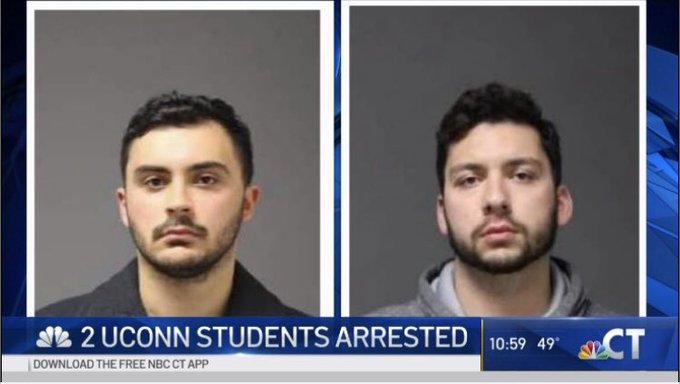A Connecticut law that was dragged out of mothballs when the University of Connecticut sought to punish two students for yelling a racial epithet is now under fire amid free speech concerns.
On Oct. 11, students walking across a parking lot late at night amused themselves by shouting vulgar words, The New York Times has reported. As the students neared a student housing complex, they changed to the n-word, and were recorded by a student inside.
After the video went viral, police charged Jarred Karal and Ryan Mucaj, both 21, with violating a 1917 Connecticut law that punishes ridicule based upon creed, religion, color, denomination, nationality or race. The charge can result in a fine of up to $500 or 30 days in jail or both, The Washington Post reported.
Amid disapproval of both the students’ conduct and the law, a bill is now pending to repeal the law.
“I know the title sort of sounds like, whoa, what are they doing,” Republican state Sen. John Kissel told The Associated Press. “But … the issue as to whether someone can really face criminal charges for something that has some real questionable constitutionality. I think is at least worth discussing at this point in time.”
Police ID 2 Students Arrested in Connection to Racial Slur Incident at UConn.
Police say 21 y/o Jarred Karal & 21 y/o Ryan Mucaj were arrested & are facing charges including ridicule on account of creed, religion, color, denomination, nationality or race.nbcwashington.com/news/national-…
191 people are talking about this
State record show the law has been used 40 times since 2012, netting 10 convictions with one person sent to jail.
“It is so clearly unconstitutional under the First Amendment that it’s hard to believe that it’s still on the books,” said William Dunlap, a professor at the Connecticut-based Quinnipiac University School of Law.
“It punishes speech based on the content of the speech, and that it is one of the key concepts of the First Amendment — that the government cannot punish speech based on its content,” he said.
“At a time when hate and bias incidents are on the rise, it is critical that the state not remove these types of prohibitions that aim to deter or punish this unacceptable behavior,” the state Commission on Human Rights and Opportunities said in written testimony for a hearing on the pending repeal.
The students who have been charged filed a federal lawsuit against UConn, saying their free speech rights were violated.
In a commentary piece for the Gatestone Institute, attorney Alan Dershowitz said the law is a violation of free speech. Dershowitz noted than many high-profile people who engage in ridicule, from comedians to activists, are free to do so without punishment.
“And therein lies its greatest danger: selective prosecution based on current political correctness. Precisely the kind of unpopular speech which the First Amendment was designed to protect would be most at risk,” he wrote.
“Anti-Semitic, anti-Christian and anti-conservative views are freely expressed not only outside of classes but in some classes as well. Such hateful expressions are not only tolerated, they are often praised as ‘progressive’ by some of the same students and faculty members who would censor politically incorrect hate speech. Under the First Amendment, such selective censorship is intolerable,” he wrote.
“Because the University of Connecticut is a public institution for adults, it is fully bound by the First Amendment. Its students are free to express racist ridicule and contempt outside of the classroom (the rules governing classroom speech are more complex).
Dershowitz also proposed his unique solution to the issue.
“The American Civil Liberties Union (ACLU) and the president of the university should lead the campaign against criminalizing speech that ridicules. Now that would take courage in our age of political correctness and at a time when the hard left is demanding ‘free speech for me but not for thee,'” he wrote. “But this is not an age in which courage is widely practiced, especially on university ca





Post a Comment